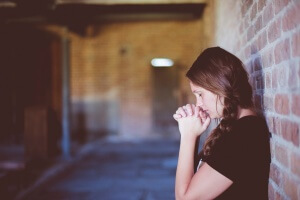Ninth Circuit Court of Appeals Rules on Prayer Issue
January 30th, 2019

The United States Ninth Circuit Court of Appeals recently supported a ruling that prohibits a California district from continuing its prayer policy.
The United States Ninth Circuit Court of Appeals recently supported a ruling by a three-judge panel that prohibits a California district from continuing its prayer policy. In arriving at this decision, the Ninth Circuit explained why the prayers in this prayer policy differed from legislative chaplain prayers which were upheld by the United States Supreme Court in 1983. The challenge presented by the Appeal Court’s decision is that the Supreme Court previously upheld a prayer policy in Greece, New York that invited mostly Christian clergy to provide prayer at council meetings.
How the Case Arose
The Chino Valley Unified School District Board of Education allowed prayers offered by invited members of the clergy. Sometimes, the clergy were also board members. During a period of several years, board members frequently endorsed prayer, read Bible verses, and proclaimed their Christian values. On appeal, the Ninth Circuit agreed that the school district’s policy violated the First Amendment prohibitions on the government establishing religion. As a result, the school district then sought an en banc rehearing which was subsequently denied for lack of support.
The United States Supreme Court Prayer Case
In the similar case heard by the Supreme Court of the United States, some of the prayer held at meetings by an organization in Greece, New York were nonsectarian, but others referenced Jesus or the Holy Spirit. The United States Supreme Court, however, decided that these prayers were permissible.
The rationale behind the Supreme Court’s opinion was that the town’s practice did not violate the Establishment Clause because the town does not discriminate against minority faiths in deciding who is able to offer a prayer; the prayer also did not coerce participation from people who do not follow the religion.
The Motivation Behind the Ninth Circuit’s Decision
The Ninth Circuit noted that its case was different from the case heard by the Supreme Court because school children were frequently present at school board meetings, which acted as an extension of the educational experience offered by the area’s public schools.
It should be noted, however, that not everyone has agreed with the Ninth Circuit’s decision. Six members of the Appeals court formally dissented from the decision not to hear the case. One Ninth Circuit judge who wrote a dissent stated that the court applied the incorrect test.
While neither the majority nor the decision argued that the United States Supreme Court should resolve the uncertainty in this issue, some critics have commented that there is a strong possibility that the court will rule on this issue.
The Universal Life Church
Even though many of the laws concerning the separation between church and state have existed since the creation of the United States Constitution, each year there are a number of significant cases that challenge the exact relationship between these two entities. The Universal Life Church strives to document these matters as they unfold. While it remains uncertain exactly how the legal matter mentioned above will resolve, readers can expect to read about it here if the case heads to the United States Supreme Court.
(image courtesy of Ben White)


